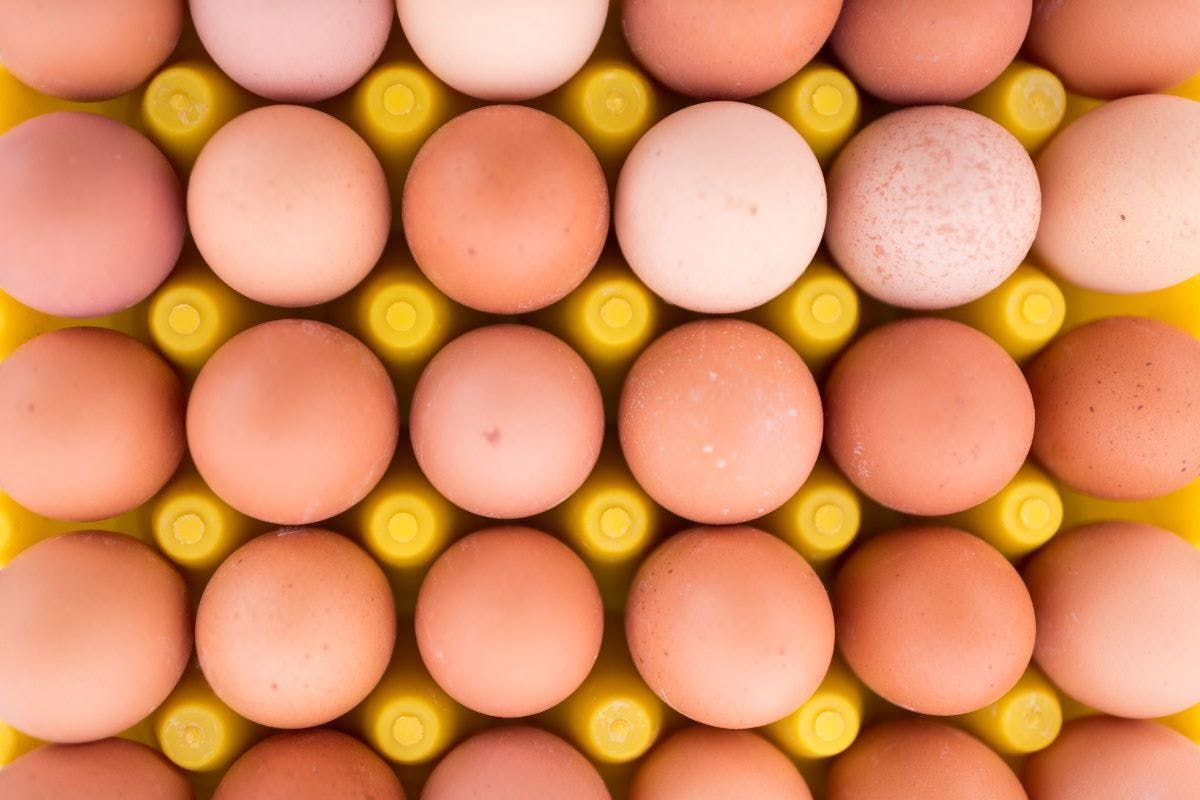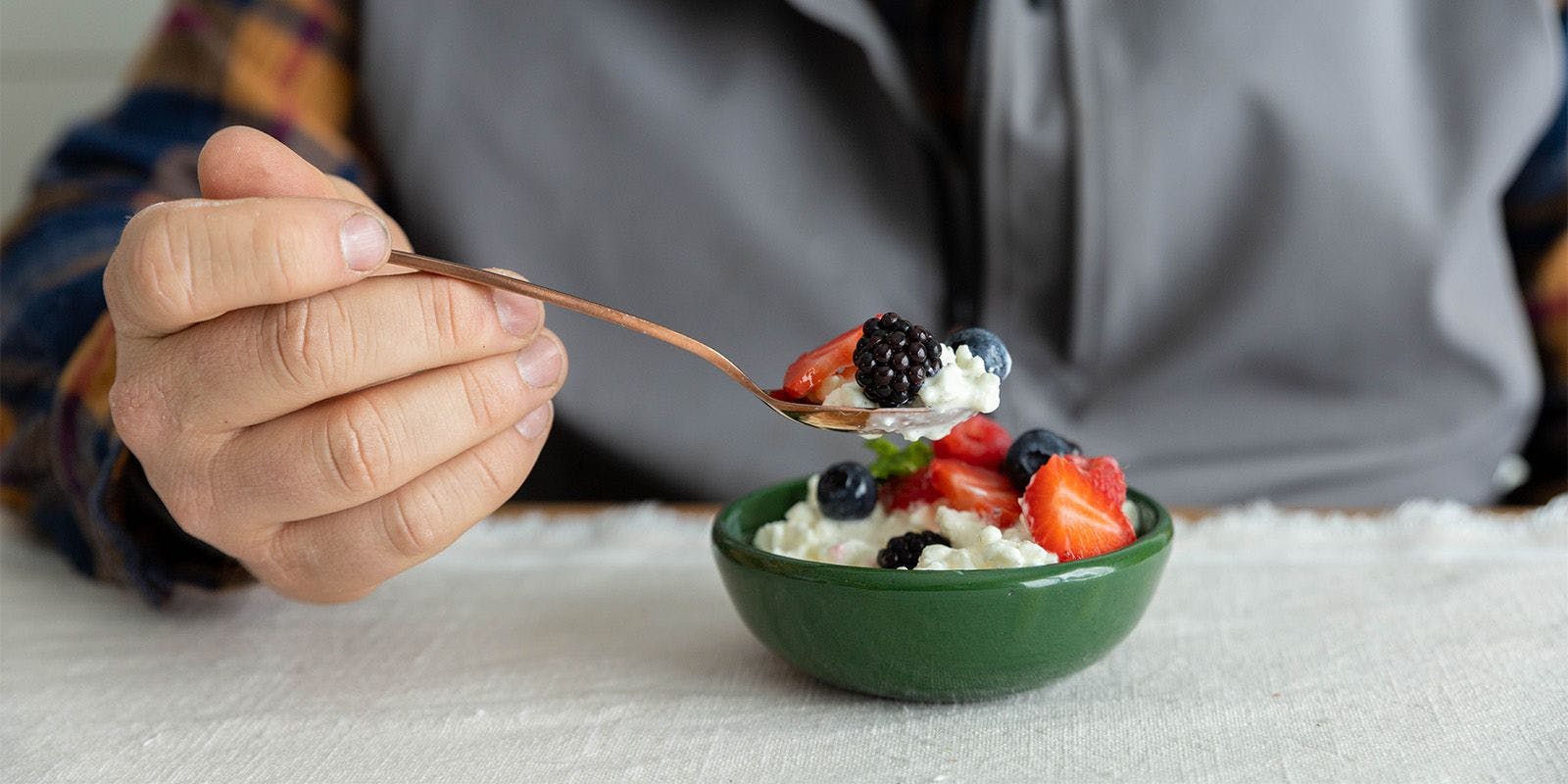
Food
It's All About the Grass: The Benefits of Vitamin K2
Getting plenty of animal foods in one’s diet is essential for adequate nutrition during every stage of life. Products that come from animals that spend lots of time on green pastures are good sources of vitamin K2 and that means Organic Valley animals have you covered!
There’s no doubt that vitamin K2 is often overlooked. Most people are familiar with vitamin K, but this vitamin has different forms: vitamin K1, or phylloquinone and K2, or menaquinone. The two play different roles in the body — vitamin K1 is primarily needed for healthy blood clotting; K2 plays a major role in bone, teeth and heart health.
Danish scientist Dr. Henrik Dam discovered the vitamin and called it vitamin “K” for koagulation (the Danish spelling of coagulation). It was big news in 1943, and Dam along with biochemist Edward Doisy were awarded the Nobel Prize in Medicine for discovering the vitamin and subsequent work with it.
Vitamin K1 mainly comes from green vegetables but the easiest way to get more K2 in the diet is by choosing plenty of pasture-raised, full-fat animal products like dairy and eggs. Organic Valley chickens and cows don’t have to be told to eat their greens and because of this you get all sorts of healthy nutrients when you consume products from them.
Animals raised on pasture consume vitamin K1-rich plants, and convert that K1 into K2 in their bodies (humans can do this as well, though the conversion can be poor). The result is vitamin K2 in the animal’s by-products. This increased nutrient content is part of why it is so important to choose animal foods from pasture-raised sources, such as Organic Valley Pasture Raised Eggs, and is an easy swap when it comes to feeding your family.
Vitamin K2 “tells” dietary calcium to deposit into the bones and teeth, supporting the health of these tissues, which is important during phases of growth such as childhood and pregnancy. Higher intakes of vitamin K2 are associated with decreased risk of osteoporosis. Though calcium and vitamin D3 are essential for bone health, K2 is a key piece of that puzzle!
This signaling by K2 also keeps calcium from depositing where it doesn’t belong: in soft tissues. Getting calcium without K2 can cause the calcium to deposit into blood vessels and other soft tissues, causing damage and hardening of these tissues. This is why K2 intake is also associated with heart and kidney health.
K2 also has antioxidant and anti-inflammatory activities, protecting cells from damage, and has been shown to support insulin sensitivity and brain and cognitive health, all important roles for the aging population. Protecting these soft tissues is best done by the animal form of vitamin K2.
Fermented Foods Contain K2
Fermentation increases K2 content as well, making foods like Grassmilk® cheese a doubly great source of this vitamin.
Fermented foods like cheese, sauerkraut and natto (a soybean product) are also high in K2. The only plant sources of K2 are these fermented foods, with the highest amount in natto; unless you regularly eat this, relying on animal products for K2 will be easier for most people on western diets.
Vitamin K, in all its forms, is a fat-soluble vitamin. This means that you need fat to absorb this nutrient, so foods like whole Grassmilk®, cheese, butter, ghee, egg yolks, Organic Prairie liver, beef tallow and higher-fat cuts of meat like Organic Prairie Ground Chicken, Bacon and Breakfast Sausage will be the best sources. It can be surprising to learn that not only do you need animal foods, but that animal fat is an important part of the diet!
By getting a balance of animal foods, plant foods and fermented foods in the diet, you are supporting the health of your whole body and ensuring adequate nutrition.
Simply by choosing more pasture raised eggs and grass-fed dairy, like pastured, antibiotic-free products from Organic Valley, you are increasing the nutrient-density of your family’s diet. Plus, because all Organic Valley products are USDA Certified Organic, you can also be confident there are no antibiotics, synthetic hormones, toxic pesticides, or GMOs!
Originally from Kansas City, Missouri, Laura Poe Mathes, R.D., moved all over the U.S. before finally figuring out that she is a country girl at heart, settling down on her homestead in the Driftless Region of southwest Wisconsin with her husband. Laura is a private practice dietitian, focusing on individualized healing and adding in traditional, whole foods. She is also a functional movement coach and a blogger, writer and speaker on health and traditional cooking techniques, such as fermentation and cooking with organ meats. She loves to spend time with her family and be out in nature as much as possible, especially canoeing, foraging and hiking. Learn more about her work at Viroqua Nutrition Counseling and on her recipe blog, Brine and Broth.
Related Articles
- Tags:
- organic nutrition,
- grass-fed,
- children,
- high quality products



















